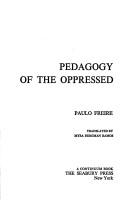Link to a video of a lecture by Jodi Dean:
“The Limits of the Web in an Age of Communicative Capitalism”
Bonus quote:
“In communicative capitalism, capitalist productivity derives from its expropriation and exploitation of communicative processes.
***
“If we are honest, we have to admit that there is actually no such thing as social media. Digital media is class media. Networked communication does not eliminate hierarchy, as we believed, in entrenches it as it uses our own choices against us.
***
“Dispossession, rather than happening all at once, is an ongoing process. No one will deny the ongoingness of data dispossession. Sometimes it is blatant: the announcement that our call will be monitored for quality assurance, the injunctions to approve Apple’s privacy changes again or the necessity of renewing passwords and credit card information. Sometimes the ongoingness is more subtle; in maps, GPS signals, video surveillance, and the RFID tags on and in items we purchase. And sometimes the ongoingness is completely beyond our grasp, as when datasets are combined and mined so as to give states and corporations actionable data for producing products, patterns, and policies based on knowing things about our interrelations one to another that we do not know ourselves. Here the currents of lives as they are lived are frozen into infinitely separable, countable, and combinatory data-points.
“Approached in terms of class struggle, big data looks like further escalation of capital’s war against labor.”
“Communicative Capitalism and Class Struggle”
Bonus links: C.T. Kurien, “The Market Economy: Theory, Ideology and Reality” and Astra Taylor, The People’s Platform and “The Power Of Selling Out: Your Customers As Political Capital” and Nick Srnicek, Platform Capitalism and Nick Dyer-Witheford, Cyber-Proletariat: Global Labour in the Digital Vortex and Alexander Galloway and Eugene Thacker, The Exploit: A Theory of Networks and The Uprising: On Poetry and Finance and Victor Pickard, “Net Neutrality Is Just the Beginning” and “The Collapse of Media and What You Can Do About It” (this article discusses the “breaking” of a self-described “exclusive” story in January 2015 that was for the most part already suggested in When Google Met Wikileaks published in September 2014, though this story was certainly fleshed out further by the later report; this also was used as a plot point in the film Jason Bourne) and “Prosumer Capitalism: Mario Maker 3DS”

